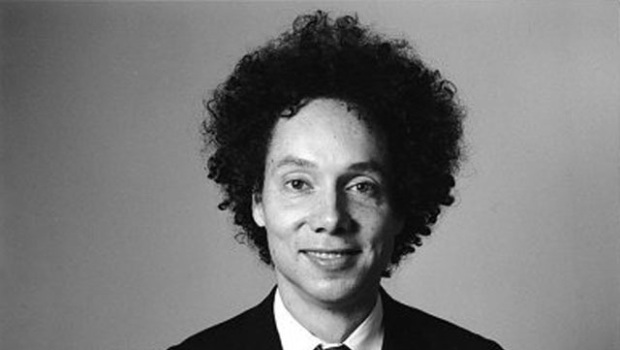Finally got to read David and Goliath by Malcolm Gladwell, which Irwin wrote about a couple of weeks ago.? It’s a fascinating book which spoke deeply to me about three things, and troubled me a little about one thing?- more on that in a moment.? I might have hesitated to boil it down so succinctly, but in this interview, that is what Gladwell himself does.
The three key insights here from the book are:
1. What others see as a weakness, may be a great strength
2. Religious faith is a powerful resource in achieving great things
3. Play your own game, not someone else’s
I am serious fan of all three propositions, especially as Gladwell describes them.
I love his stories of people using a weakness in one area to heighten their capacities in other areas, especially the idea that one who has trouble reading can develop especially keen listening skills.? To really listen to someone is actually more than a technical skill; it is an art which can be truly transformative.
Think of a time when you felt truly listened to.? How did you feel?? My, guess, especially if you are able to feel listened to, even when you are not agreed with, is that it was a singular experience.? Now imagine the power of sharing that gift with someone else.? Clearly, Gladwell is on to something.
His take on faith is particularly important because as he explains it, deep faith offers the courage not of absolute certainty, as it so often does, but the courage to be open and even vulnerable.? He describes people who embrace faith, religious faith, as a pathway to openness, not rigid dogma – at least not only of rigid dogma.? That’s the kind of faith I try and practice.? I may often fail, but at least that’s the goal.
Finally, his stories which encourage us to play our own game are so important.? Clearly, none of us is an island, and we should not ignore the rules by which others play – at least not if we hope to play with them.? On the other hand, to be truly authentic, we must, at least in some way be playing our own game – the game we feel most called to play.
The word authentic comes from the Greek word “autos”, or self.? To be authentic means to be as in touch as possible with whoever we think we most deeply are, and to act accordingly, as much as possible.
The disturbing part?? It’s really more a cautionary note regarding adversity.? Be cautious about celebrating adversity, especially someone else’s, even as a path to great achievement.? Pain may be a great teacher, and I am all for making the best of a bad situation, but I would rather find other paths to learning than adversity and suffering, no matter how powerful those latter paths can be.? Wouldn’t you?

Listed for many years in Newsweek as one of America’s “50 Most Influential Rabbis” and recognized as one of our nation’s leading “Preachers and Teachers,” by Beliefnet.com, Rabbi Brad Hirschfield serves as the President of Clal–The National Jewish Center for Learning and Leadership, a training institute, think tank, and resource center nurturing religious and intellectual pluralism within the Jewish community, and the wider world, preparing people to meet the biggest challenges we face in our increasingly polarized world.
An ordained Orthodox rabbi who studied for his PhD and taught at The Jewish Theological Seminary, he has also taught the University of Pennsylvania, where he directs an ongoing seminar, and American Jewish University. Rabbi Brad regularly teaches and consults for the US Army and United States Department of Defense, religious organizations — Jewish and Christian — including United Seminary (Methodist), Yeshivat Chovevei Torah (Modern Orthodox) Luther Seminary (Lutheran), and The Jewish Theological Seminary (Conservative) — civic organizations including No Labels, Odyssey Impact, and The Aspen Institute, numerous Jewish Federations, and a variety of communal and family foundations.
Hirschfield is the author and editor of numerous books, including You Don’t Have To Be Wrong For Me To Be Right: Finding Faith Without Fanaticism, writes a column for Religion News Service, and appears regularly on TV and radio in outlets ranging from The Washington Post to Fox News Channel. He is also the founder of the Stand and See Fellowship, which brings hundreds of Christian religious leaders to Israel, preparing them to address the increasing polarization around Middle East issues — and really all currently polarizing issues at home and abroad — with six words, “It’s more complicated than we know.”

